
Bruce Bower has written about the behavioral sciences since 1984. He often writes about psychology, anthropology, archaeology and mental health issues. Bruce has a master's degree in psychology from Pepperdine University and a master's degree in journalism from the University of Missouri. Following an internship at Science News in 1981, he worked as a reporter at Psychiatric News, a publication of the American Psychiatric Association, until joining Science News as a staff writer. In 1996, the American Psychological Association appointed Bruce a Science Writer Fellow, with a grant to visit psychological scientists of his own choosing. Early stints as an aide in a day school for children and teenagers with severe psychological problems and as a counselor in a drug diversion center provided Bruce with a surprisingly good background for a career in science journalism.

Trustworthy journalism comes at a price.
Scientists and journalists share a core belief in questioning, observing and verifying to reach the truth. Science News reports on crucial research and discovery across science disciplines. We need your financial support to make it happen – every contribution makes a difference.
All Stories by Bruce Bower
-
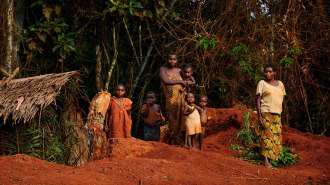 Genetics
GeneticsAncient kids’ DNA reveals new insights into how Africa was populated
Four long-dead youngsters from west-central Africa have opened a window on humankind’s far-flung African origins.
-
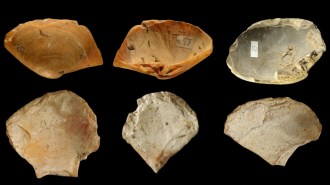 Anthropology
AnthropologyNeandertals dove and harvested clamshells for tools near Italy’s shores
The discovery of sharpened shells broadens the reputation of Stone Age human relatives: Neandertals weren’t just one-trick mammoth hunters.
-
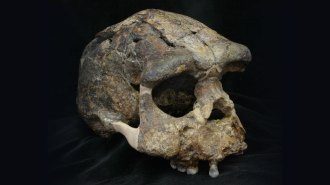 Humans
HumansHomo erectus arrived in Indonesia 300,000 years later than previously thought
The extinct, humanlike hominid likely reached the island of Java by around 1.3 million years ago, a study finds.
-
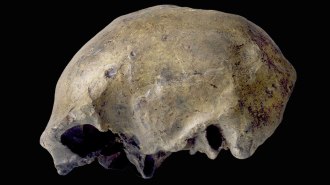 Anthropology
AnthropologyHomo erectus’ last known appearance dates to roughly 117,000 years ago
New evidence helps resolve a debate over how long ago Home erectus survived in what’s now Indonesia, a study finds.
-
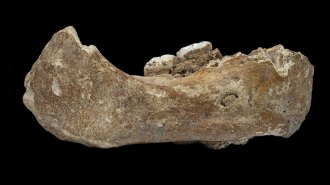 Humans
HumansMysterious Denisovans emerged from the shadows in 2019
Denisovan fossil and DNA finds this year highlighted the enigmatic hominid’s complexity and our own hybrid roots.
-
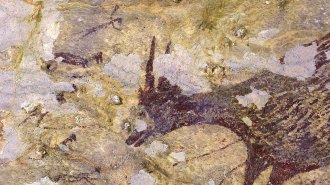 Archaeology
ArchaeologyA nearly 44,000-year-old hunting scene is the oldest known storytelling art
Cave art in Indonesia dating to at least 43,900 years ago is the earliest known storytelling art, and shows otherworldly human-animal hunters.
-
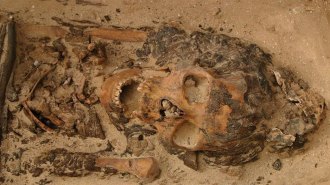 Archaeology
ArchaeologyArchaeologists have finally found ancient Egyptian wax head cones
Newly discovered wax caps are the first physical examples of apparel shown in many ancient Egyptian art works.
-
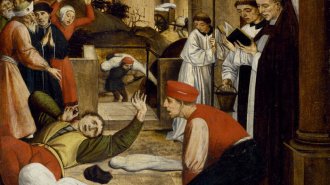 Humans
HumansAn ancient outbreak of bubonic plague may have been exaggerated
Archaeological evidence suggests that an epidemic that occurred several centuries before the Black Death didn’t radically change European history.
-
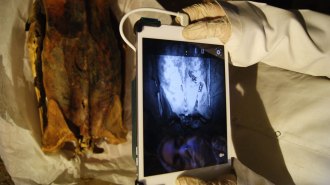 Archaeology
ArchaeologyInfrared images reveal hidden tattoos on Egyptian mummies
Infrared images show a range of markings on seven female mummies, raising questions about ancient Egyptian tattoo traditions.
-
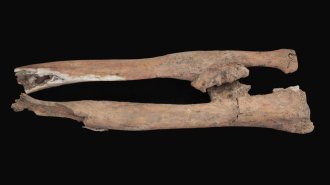 Humans
HumansArchaeologists tie ancient bones to a revolt chronicled on the Rosetta Stone
The skeleton of an ancient soldier found in the Nile Delta provides a rare glimpse into an uprising around 2,200 years ago.
-
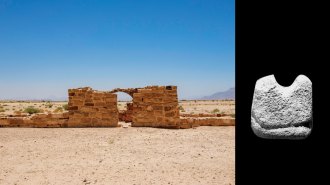 Archaeology
ArchaeologyA carved rock found in Jordan may be the oldest known chess piece
The 1,300-year-old game piece, which resembles a rook, or castle, was found at an Early Islamic trading outpost.
-
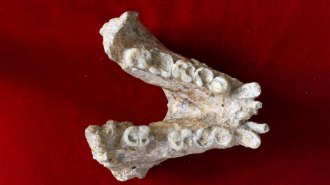 Animals
AnimalsA tooth fossil shows Gigantopithecus’ close ties to modern orangutans
Proteins from the past help clarify how an ancient Asian ape that was larger than a full-grown, modern male gorilla evolved.